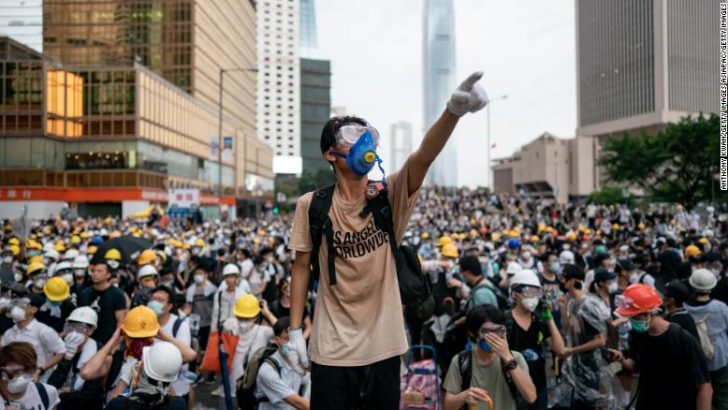As Pope Francis entrusted China to the Blessed Virgin, police in Hong Kong were firing tear gas and water cannon at protesters rallying against China’s plans to impose a new security law on the territory.
The Holy Father imparted a special Apostolic Blessing upon China for the feast of Our Lady Help of Christians at the weekend.
However, there was no mention made of the latest threat from Beijing to the freedoms agreed for Hong Kong in the Basic Law, when Britain handed over the territory to China in 1997.
“Dear Catholic brothers and sisters in China,” the Pope said during his Sunday Regina Caeli address, “I wish to assure you that the universal Church, of which you are an integral part, shares your hopes and supports you in trials.
“It accompanies you with prayer for a new outpouring of the Holy Spirit, so that the light and beauty of the Gospel, the power of God for the salvation of whoever believes, can shine in you,” he said.
Under the ‘one country, two systems’ concept, the territory is guaranteed an independent judiciary and police force for 50 years including rights “of freedom of speech, of the press and of publication; freedom of association, of assembly, of procession and of demonstration”.
China, where none of these rights apply, is seeking to pass a new law which would ban what the communist authorities describe as “treason, secession, sedition and subversion” in the territory and China’s Foreign Minister Wang Yi said the legislation should be brought in “without the slightest delay”.
The new measure – referred to as the ‘draft decision’ – states that “when needed, relevant national security organs of the Central People’s Government will set up agencies in Hong Kong to fulfil relevant duties to safeguard national security in accordance with the law”.
Arrests
This means that China could have its own law enforcement agencies in Hong Kong, along with the city’s own; a prospect that fills the Hong Kong pro-democracy movement with dread, given Beijing’s draconian record of arrest without due cause, detention without trial, torture and universal surveillance of the population.
Hong Kong’s leader Carrie Lam, who is seen by the democracy activists as part of the pro-Beijing political establishment, has pledged full support for the proposed law and said the territory’s rights would remain unchanged.
The National People’s Congress (NPC) is expected to vote on the “draft decision” at the end of its annual session today (May 28) and will then go to the NPC’s Standing Committee, China’s top legislature, which is expected to finalise and enact the law by the end of June.


